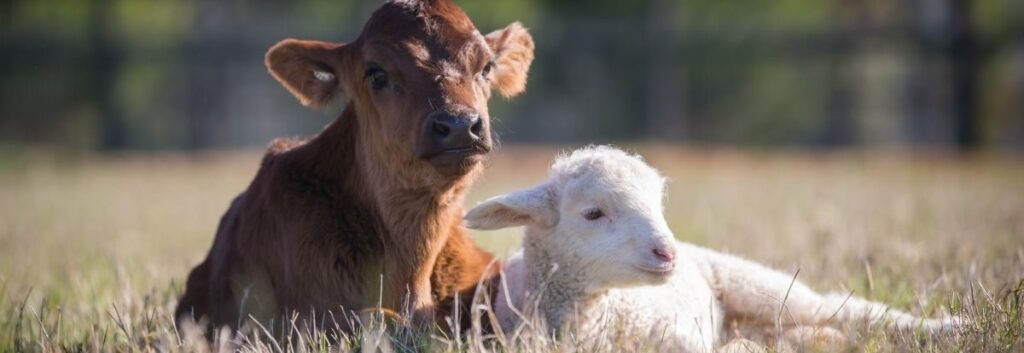
Australasian Animal Studies Association (AASA) Online Conference
30 November to 2 December – Call for Papers – Closed
https://artsfront.com/event/137832-flourishing-animals
We are in a period of crisis: the COVID-19 pandemic, unprecedented weather events and catastrophe shape our present context. These crises are interconnected with the ongoing devastation of anthropogenic climate change and the continuing violence of settler colonial logics. This period has highlighted the deep contradictions in our relations with domesticated animals and animals in “the wild”, and, indeed, the “wild” itself; indeed, many of the questions which have energised animal studies for decades have now been pushed into the spotlight. This includes the place of animals within human food supplies and their relation to zoonotic disease, the continuing reality of mass extinctions and their interconnection with human activity, and the material impacts of disasters – fires, drought and floods – on non-human life. Here, a prevailing anthropocentrism is today threatening to annihilate everything: something Danielle Celermajer describes as “omnicide” (Celermajer 2020)
However, this period has also highlighted the resilience of life, in its many forms. For animal studies, this creates an opportunity to flag the continuing importance of our work in seeking to understand thriving non-human worlds, and interpret how these worlds interconnect with human societies. Animal studies scholars can thus reinterpret our past, present and future by highlighting alternative forms of understanding, including the knowledge systems and justice claims of First Nations peoples, which might offer different views of animals and nature. These discussions highlight how we can co-exist with animals and environments in ways that recognise and promote flourishing for all life. A focus on flourishing connects with prominent work in animal ethics, such as the capabilities approach of Martha Nussbaum (2006). But it also opens to emerging scholarship such as the work of Rosemary-Claire Collard, Jessica Dempsey and Juanita Sundberg which emphasises interconnected economies of human and more than human “abundance” (Collard et al 2014) or Kim TallBear’s call for a “spatial narrative of caretaking relations” in opposition to settler colonial (TallBear 2019).
This conference focuses on resilience and flourishing in animal lives. The Australasian Animal Studies Association (AASA) calls for paper and panel proposals for its online conference in late November and early December 2021. Proposals are encouraged in a range of themes including:
First Nations and decolonial perspectives on animal flourishing;
animal flourishing amidst capitalist economies and geographies of neoliberalism;
feminist approaches to flourishing and the politics of care;
animal flourishing and animal sanctuary movements;
public policy approaches to welfare and rights that prioritise conceptions of flourishing and resilience;
perspectives shaped by queer theory on desire, pleasure, affect, optimism and futurity;
philosophical approaches to flourishing, capabilities and positive rights;
the politics of flourishing and resilience and its relation to the “political turn” in animal studies
spirituality, faith and religiosity and their perspectives on animal flourishing.
Keynote and Plenary Speakers
Christine Winter, The University of Sydney
Pattrice Jones, VINE Sanctuary
Danielle Celermajer, The University of Sydney
David Clough, University of Aberdeen
Arian Wallach, University of Technology Sydney
Daniel Ramp, University of Technology Sydney
Laura Jean McKay, Massey University
Presentations will be online, with sessions scheduled between 12 noon and 7.30pm Australian Eastern Standard Time in the period 30 November to 2 December 2021; the goal is to make the schedule as accessible as possible to participants from all over the world. Presenters will have the option of pre-preparing a video to support their presentations.
You can lodge your abstract (250–300 Words) or panel proposal (250–300 word summary, plus participant list) at this link. Submissions are due by 15 September 2021
For more information and registration details, please visit: https://artsfront.com/event/137832-flourishing-animals
Previous AASA conferences include “Decolonizing Animals” (2019), “Animal Intersections” (2017), “Animal Publics” (2015) and “Life in the Anthropocene” (2013). See https://animalstudies.org.au/conferences
References:
Celermajer, Danielle. 2020. “Omnicide: Who is responsible for the gravest of all crimes?” ABC Religion and Ethics. 3 January 2020. At:https://www.abc.net.au/religion/danielle-celermajer-omnicide-gravest-of-all-crimes/11838534
Collard, Rosemary-Claire, Jessica Dempsey and Juanita Sundberg. 2015. “A Manifesto for Abundant Futures.” Annals of the Association of American Geographers. 105:2, 322-330, DOI: 10.1080/00045608.2014.973007
Nussbaum. Martha C. 2006. Frontiers of Justice : Disability, Nationality, Species Membership. Cambridge: Harvard University Press.
Tallbear, Kim. 2019. “Caretaking Relations, Not American Dreaming.” Kalfou. 2019;6(1):24-41. 24-5. DOI:https://doi.org/10.15367/kf.v6i1.228
